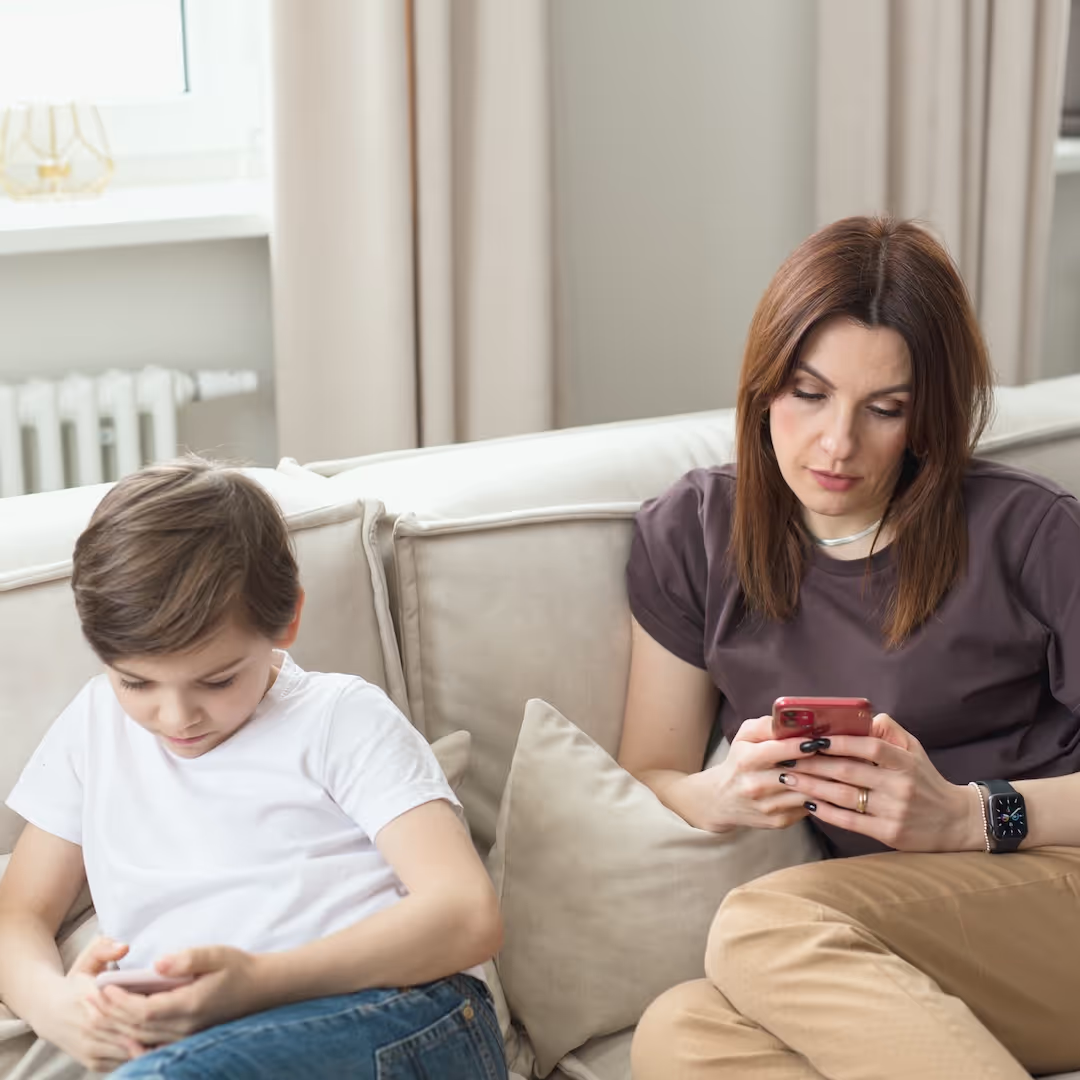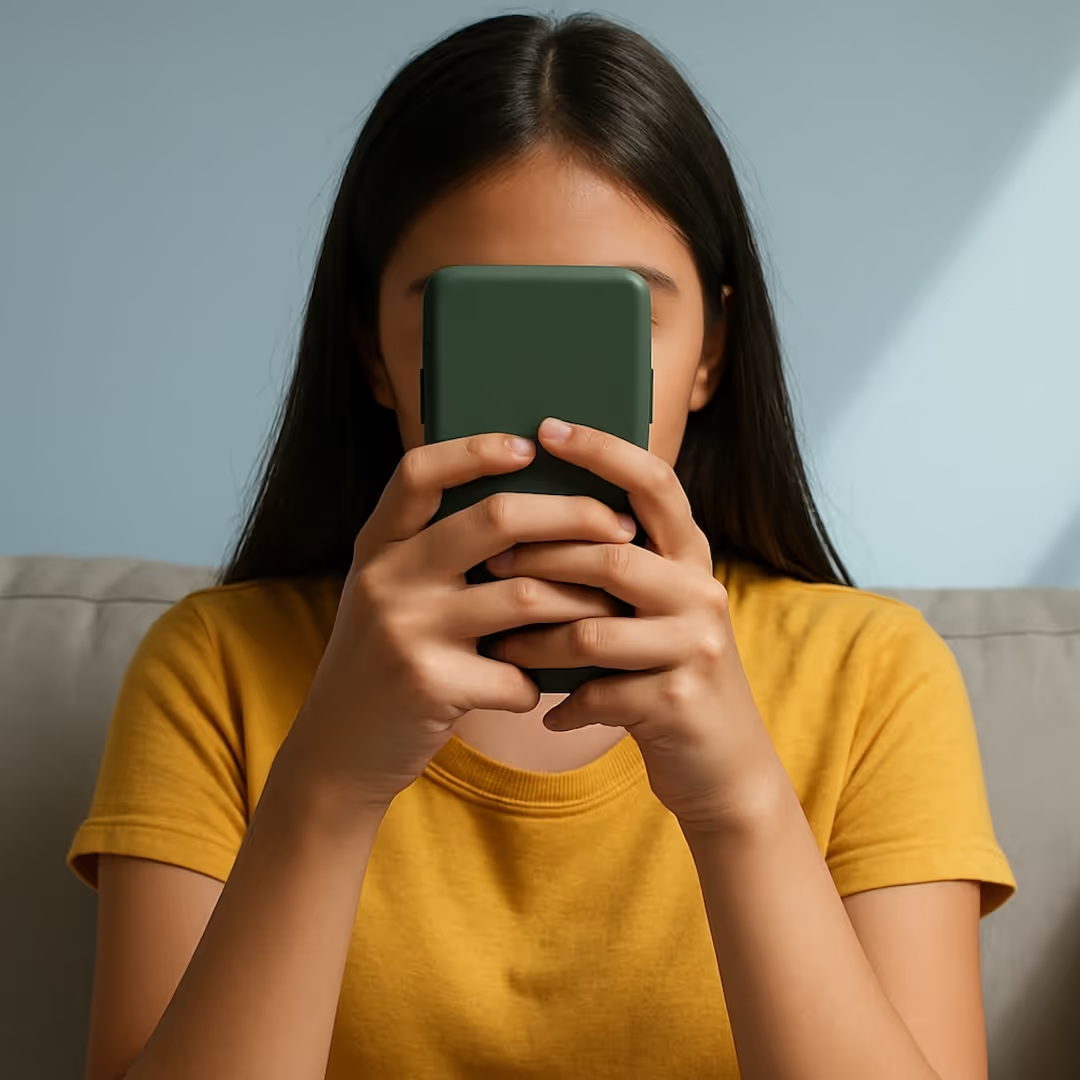


One day Tessa came charging into my office with her laptop and said, “Mom, look at this video!”
It was a video titled “I hate my life” by a YouTuber named Luna Montana.
Tessa explained that Luna is a popular YouTuber, and this particular video was of Luna in tears because she was really questioning her whole online life. What struck Tessa was that this is not that common for YouTubers to do. Yes, they can share personal information and such, but rarely do they break down and express their ambivalence of being an influencer.
“It’s so dark for me to make idealized versions of myself just so people can praise that version of me. How am I supposed to love my actual real self?”
“I am showing my body all the time, showing provocative content all the time, it is not me, it’s just a cry for attention.”
“I’m making videos of me buying fashion … it’s so useless.”
“I’m becoming the girl I didn’t want to be.”
Learn more about showing our movies in your school or community!
Join Screenagers filmmaker Delaney Ruston MD for our latest Podcast

Learn more about our Screen-Free Sleep campaign at the website!
Our movie made for parents and educators of younger kids
Learn more about showing our movies in your school or community!
After watching the video, I asked Tessa if I could see what Luna usually is like on social media, and she showed me her Instagram feed. My husband was in the room, and we both glanced over to see one gorgeous shot after another, and some were fairly suggestive, like one where she’s wearing lingerie.
One phrase just kept coming into my mind while seeing all this, “Mixed messages, truly mixed messages.” I thought of the millions of young girls growing up with a steady stream of YouTube videos with influencers giving so many mixed messages. On the one hand, it is great that Luna is sharing that she is so conflicted about what she is doing. On the other hand, how would an 11-year-old girl reconcile Luna’s countless videos showing her having so much fun, hundreds of glamorous photos, and videos of shopping sprees?
Life is full of contradictions, and our kids try to make sense of them every day. What is their take on the YouTubers they watch? On Luna’s video?
From my perspective, I do appreciate that by making the video, Luna is giving her viewers a fuller perspective of a YouTuber’s complicated relationship with their life. It is not all glam all the time, and negative self-talk is a reality no matter how glam someone looks.
Also, in the video, Luna talks about how she is dealing with intense emotions and getting support from a therapist — I am glad that she is normalizing getting help from a therapist.
Another aspect of Luna’s video worth discussing is how each of us decides what feels authentic and what feels more crafted. YouTubers use frequent jump cuts in their editing. Does this kind of editing make us wonder how much is spontaneous and sincere vs. more intentionally sculpted? From my perspective, I experienced real empathy when I watched her video — she seems to be truly struggling, and my heart goes out to her.
Learn more about showing our movies in your school or community!
Join Screenagers filmmaker Delaney Ruston MD for our latest Podcast

Learn more about our Screen-Free Sleep campaign at the website!
Our movie made for parents and educators of younger kids
Join Screenagers filmmaker Delaney Ruston MD for our latest Podcast
Sharing Luna’s “I hate my life” video with your kids can be a way to bring up the topic of all the complex messages, direct and indirect, that viewers get when watching influencers. (By the way, it’s a long video and by no means do you have to watch the whole thing to get a good conversation going.) And a final note: be prepared that Luna’s video brings up a lot about body image that is a painful reminder of this very charged topic and merits more time in a later Tech Talk Tuesdays blog post.
As we’re about to celebrate 10 years of Screenagers, we want to hear what’s been most helpful and what you’d like to see next.
Please click here to share your thoughts with us in our community survey. It only takes 5–10 minutes, and everyone who completes it will be entered to win one of five $50 Amazon vouchers.
One day Tessa came charging into my office with her laptop and said, “Mom, look at this video!”
It was a video titled “I hate my life” by a YouTuber named Luna Montana.
Tessa explained that Luna is a popular YouTuber, and this particular video was of Luna in tears because she was really questioning her whole online life. What struck Tessa was that this is not that common for YouTubers to do. Yes, they can share personal information and such, but rarely do they break down and express their ambivalence of being an influencer.
“It’s so dark for me to make idealized versions of myself just so people can praise that version of me. How am I supposed to love my actual real self?”
“I am showing my body all the time, showing provocative content all the time, it is not me, it’s just a cry for attention.”
“I’m making videos of me buying fashion … it’s so useless.”
“I’m becoming the girl I didn’t want to be.”
After watching the video, I asked Tessa if I could see what Luna usually is like on social media, and she showed me her Instagram feed. My husband was in the room, and we both glanced over to see one gorgeous shot after another, and some were fairly suggestive, like one where she’s wearing lingerie.
One phrase just kept coming into my mind while seeing all this, “Mixed messages, truly mixed messages.” I thought of the millions of young girls growing up with a steady stream of YouTube videos with influencers giving so many mixed messages. On the one hand, it is great that Luna is sharing that she is so conflicted about what she is doing. On the other hand, how would an 11-year-old girl reconcile Luna’s countless videos showing her having so much fun, hundreds of glamorous photos, and videos of shopping sprees?
Life is full of contradictions, and our kids try to make sense of them every day. What is their take on the YouTubers they watch? On Luna’s video?
From my perspective, I do appreciate that by making the video, Luna is giving her viewers a fuller perspective of a YouTuber’s complicated relationship with their life. It is not all glam all the time, and negative self-talk is a reality no matter how glam someone looks.
Also, in the video, Luna talks about how she is dealing with intense emotions and getting support from a therapist — I am glad that she is normalizing getting help from a therapist.
Another aspect of Luna’s video worth discussing is how each of us decides what feels authentic and what feels more crafted. YouTubers use frequent jump cuts in their editing. Does this kind of editing make us wonder how much is spontaneous and sincere vs. more intentionally sculpted? From my perspective, I experienced real empathy when I watched her video — she seems to be truly struggling, and my heart goes out to her.
Sharing Luna’s “I hate my life” video with your kids can be a way to bring up the topic of all the complex messages, direct and indirect, that viewers get when watching influencers. (By the way, it’s a long video and by no means do you have to watch the whole thing to get a good conversation going.) And a final note: be prepared that Luna’s video brings up a lot about body image that is a painful reminder of this very charged topic and merits more time in a later Tech Talk Tuesdays blog post.
Sign up here to receive the weekly Tech Talk Tuesdays newsletter from Screenagers filmmaker Delaney Ruston MD.
We respect your privacy.
One day Tessa came charging into my office with her laptop and said, “Mom, look at this video!”
It was a video titled “I hate my life” by a YouTuber named Luna Montana.
Tessa explained that Luna is a popular YouTuber, and this particular video was of Luna in tears because she was really questioning her whole online life. What struck Tessa was that this is not that common for YouTubers to do. Yes, they can share personal information and such, but rarely do they break down and express their ambivalence of being an influencer.
“It’s so dark for me to make idealized versions of myself just so people can praise that version of me. How am I supposed to love my actual real self?”
“I am showing my body all the time, showing provocative content all the time, it is not me, it’s just a cry for attention.”
“I’m making videos of me buying fashion … it’s so useless.”
“I’m becoming the girl I didn’t want to be.”

It feels like we’re finally hitting a tipping point. The harms from social media in young people’s lives have been building for far too long, and bold solutions can’t wait any longer. That’s why what just happened in Australia is extremely exciting. Their new nationwide move marks one of the biggest attempts yet to protect kids online. And as we released a new podcast episode yesterday featuring a mother who lost her 14-year-old son after a tragic connection made through social media, I couldn’t help but think: this is exactly the kind of real-world action families have been desperate for. In today’s blog, I share five key things to understand about what Australia is doing because it’s big, it’s controversial, and it might just spark global change.
READ MORE >
I hear from so many parents who feel conflicted about their own phone habits when it comes to modeling healthy use for their kids. They’ll say, “I tell my kids to get off their screens, but then I’m on mine all the time.” Today I introduce two moms who are taking on my One Small Change Challenge and share how you can try it too.
READ MORE >
This week’s blog explores how influencers and social media promoting so-called “Healthy” ideals — from food rules to fitness fads — can quietly lead young people toward disordered eating. Featuring insights from Dr. Jennifer Gaudiani, a leading expert on eating disorders, we unpack how to spot harmful messages and start honest conversations with kids about wellness, body image, and what “healthy” really means.
READ MORE >for more like this, DR. DELANEY RUSTON'S NEW BOOK, PARENTING IN THE SCREEN AGE, IS THE DEFINITIVE GUIDE FOR TODAY’S PARENTS. WITH INSIGHTS ON SCREEN TIME FROM RESEARCHERS, INPUT FROM KIDS & TEENS, THIS BOOK IS PACKED WITH SOLUTIONS FOR HOW TO START AND SUSTAIN PRODUCTIVE FAMILY TALKS ABOUT TECHNOLOGY AND IT’S IMPACT ON OUR MENTAL WELLBEING.
